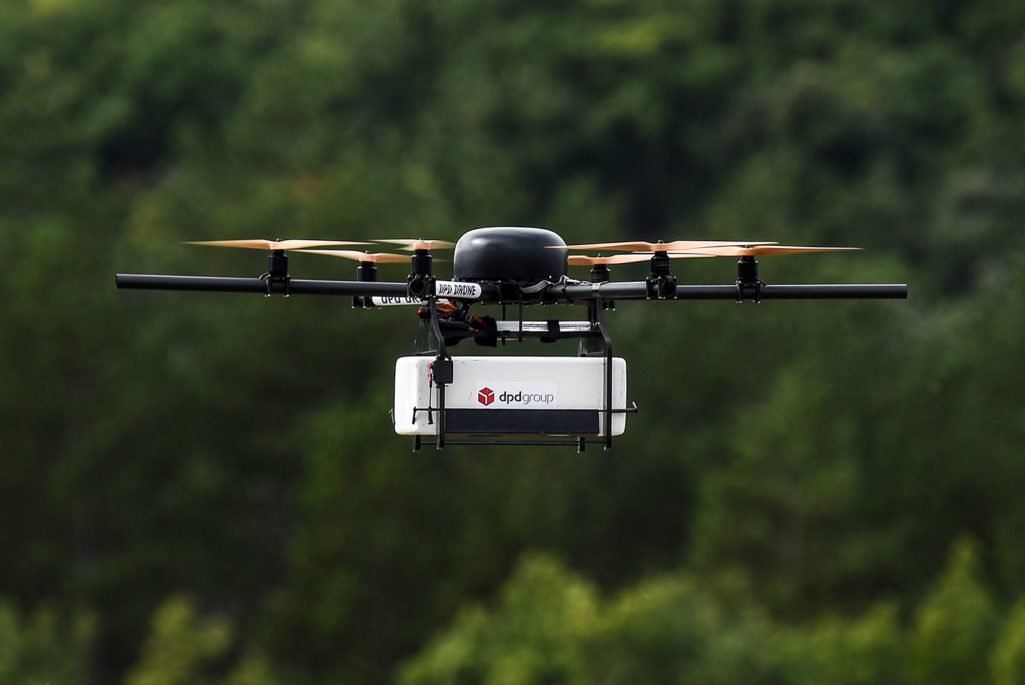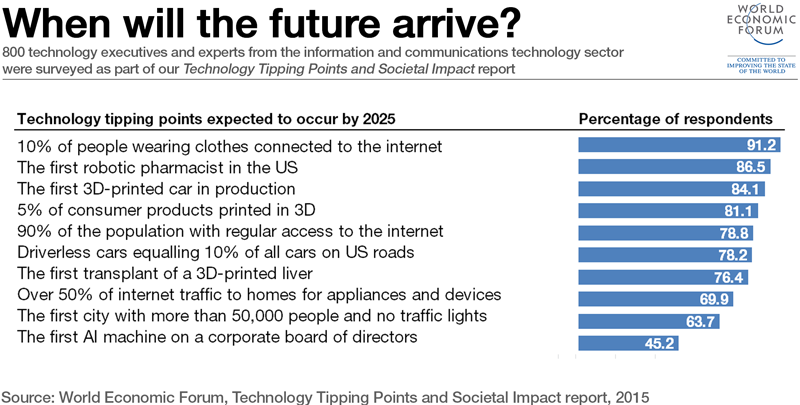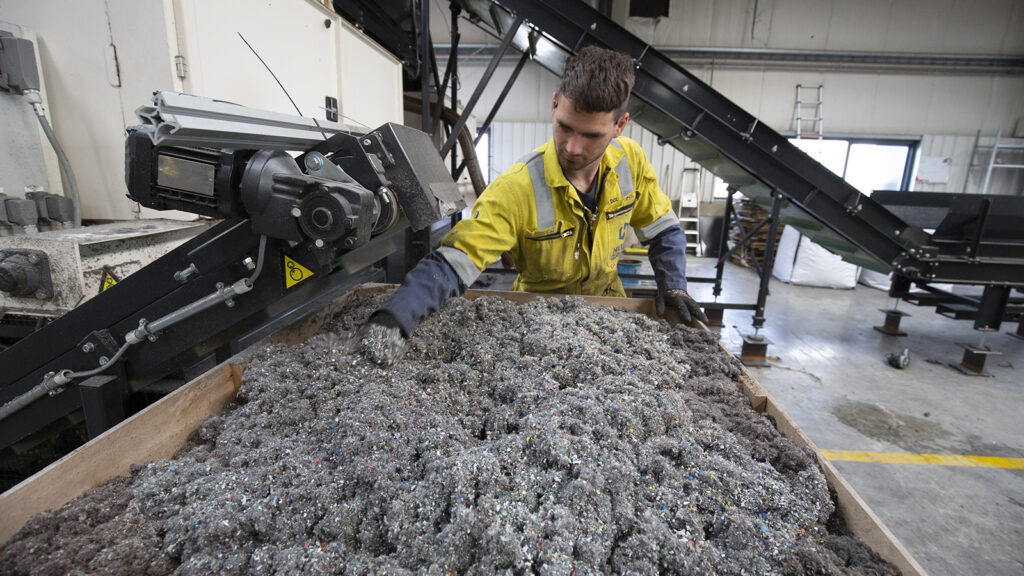The End-To-End Autonomous Supply Chain … Is Here

A Geopost drone flying in Pourrieres of southeastern France, during a presentation of a prototype of a package delivery drone. Geopost is a branch of the French La Poste group.
Photo: Boris Horvat/AFP/Getty Images
From Amazon’s delivery drones to self-driving cars, autonomous factory equipment to Elon Musk’s vacuum tubes that will transport items at 760 miles per hour—automated vehicles are on the rise.
Even beyond the realm of private companies, automated transport has been successfully tested. Six convoys of platoons, in groups of two or three trucks—communicating wirelessly and driving closely behind one another—arrived by public road in Rotterdam in April 2016. The Ministry of Transport in Singapore and the port operator, PSA, seek proposals to develop an autonomous truck platooning system. Airbus is pursuing an autonomous air taxi project to deliver parcels to ships in the port of Singapore.
As an alternative to drones and surface transportation on roads or through tubes, experts in Switzerland have presented a plan to move goods across the country in a gigantic underground tunnel. On the waters, the cargo ships of the future are expected to be crewless and remote-controlled.
Complexity of ‘The Last Mile’
The so-called last mile, the delivery to the doors of businesses and consumers, is probably the most complex task in the supply chain—in particular in the diverse urban universe of cars, bicycles and children playing on the streets. As an alternative to drones, the start-up, Dispatch, has developed an autonomous last-mile solution that can move a total of 100 pounds. In order to learn to move safely alongside other vehicles and citizens, the robot is equipped with sensors and artificial intelligence technology.
In Paris, two entrepreneurs are building a river shuttle that will essentially fly above the Seine to avoid congestion on the busy streets. Another startup, Parcelhome, has developed intelligent lockers and boxes to complete the autonomous supply chain.
In parallel, engineers are working on building the software to coordinate thousands of autonomous units on, under and above the ground, on the rivers, lakes and oceans—to move passengers and cargo.
In summary, the autonomous end-to-end supply chain is almost complete. Raw materials extracted in automated mines reach the smart industry 4.0 and from there are transported by truck platoons or long-distance drones to purchasers, or the automated distribution centers of wholesalers, retailers or e-commerce warehouses. Drones, robots, or urban tubes deliver the products directly into homes or smart boxes—or via self-driving cars, sent to pick up goods from local sorting centers.
A Safer, More Efficient Supply Chain … and its Challenges
The autonomous supply chain will create enormous opportunities to make the flow of goods safer, more efficient and environmentally friendly: self-driving cars alone would reduce accidents by 70 percent, improve fuel-efficiency by 20 percent, and save about 1.2 billion hours of pure driving time over a period of ten years. Less congestion will make the flow of goods and people faster—and those countries with driver shortages, such as the U.S., the UK and Germany will find relief.
These improvements do not come without their challenges. One key concern is cyber risk. We need to ensure that autonomous units cannot be hacked. Ethical questions must also be answered. How should we decide who a vehicle should save in the case of an accident? Policymakers need to consider where to drive innovation and where to slow down the autonomous economy to avoid unwanted consequences, such as job losses.
The autonomous movement, which started in the early 1950s, is now in full swing. Some 70 percent of 1,433 consumers surveyed in the U.S. think they will order their first drone-delivered package within the next five years. Almost 90 percent of policymakers expect autonomous vehicles to gradually become reality within the next 10 years, according to a 2015 World Economic Forum study. Many of the cities interviewed consider goods delivery as one of the key applications for autonomous transportation in their city.
Some 60 percent of policymakers in the study expect a ban for private cars in a significant part of the city over the next 15 years. Will this stay limited to private vehicles? Probably not. Over time, cities will further regulate goods deliveries. One of the pain points for citizens today is daytime deliveries, which regularly come with double parking and add to the city’s overall congestion. Therefore, shippers, in addition to transportation companies, need to prepare for the autonomous future.
Capturing the full potential of the automated supply chain requires rethinking and transforming the mainstream logistics systems: from the fixed “collect in the evening and deliver during the morning” approach to a fluid system of continuous movement and supply. Platoons, drones, tunnels, tubes, rolling robots and automated warehouses will make that constant flow possible. This requires flexibility and innovation on operator level and investments in technology and infrastructure.
The realization of the autonomous supply chain requires close collaboration between manufacturers, operators, retailers, developers, policymakers and citizens.
The global self-driving vehicle study yielded hopes in respect to the environment and our health: 66 percent of the 5,500 consumers surveyed said that, to their minds, self-driving cars would be electric or hybrid. In light of all the benefits and challenges of the autonomous supply chain, creating a pilot program somewhere in the world with fully-fledged autonomous mobility of goods and people would be a major step toward cleaner, safer and more efficient cities.
This piece first appeared in The Agenda from the World Economic Forum.







